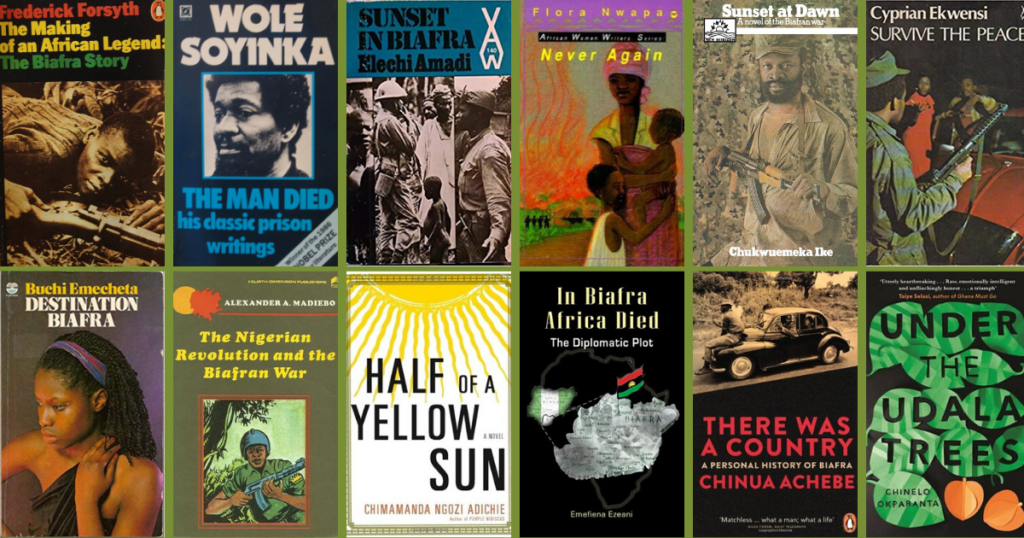
In July 1967, the then seven-year-old state of Nigeria went to war in its eastern region against the newly seceded state of Biafra, with a population mostly Igbo but also Ijaw, Efik, and Ibibio, among others. The 30-month conflict, which left up to two million civilians dead in the region, is the darkest moment for Nigeria, and it continues to haunt a country deliberate in its ignorance of history. The factors that contributed to the war, including fears of ethnic domination and political marginalization, are still present, but they are not being addressed.
Today, January 15, 2020, marks 50 years since Biafra surrendered to Nigeria. Although the suffering endured during the period is scarcely sensibly broached in mainstream discourse, the causes, nature, and implications of the war have been the subject of books by Nigerian writers. From Cyprian Ekwensi’s fictionalization of crime and disorder in post-war Biafra in Survive the Peace (1976) and Chinua Achebe’s first-hand account as an administrator and writer in There Was a Country (2012) to Chimamanda Ngozi Adichie’s portrayal of middle-class lives in Half of a Yellow Sun (2006) and Chinelo Okparanta’s centering of lesbian women in Under the Udala Trees (2015), here are some of the notable books—nonfiction books, memoirs, novels, short story collections—that deal with the War.
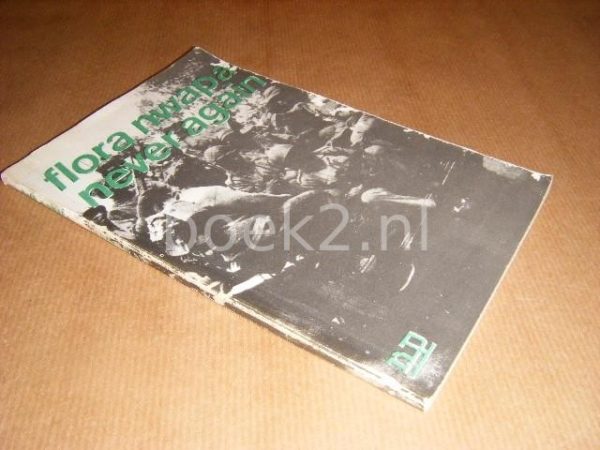
Never Again (1975), by Flora Nwapa
In Never Again, Nigeria’s first female novelist shines light on the lives of ordinary Biafrans during the war. Nwapa tells the story of the war from her own hometown Oguta, relying on the day-to-day conversations of the characters to provide the reader with a sense of the climate. At 85 pages, Never Again is a fast-paced, wholly entertaining read.
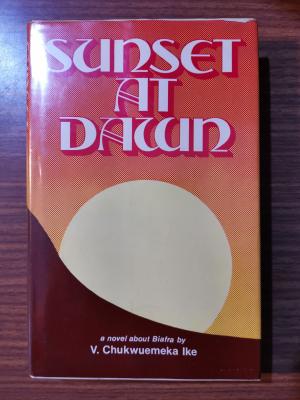
Sunset at Dawn (1976), by Chukwuemeka Ike
Chukwuemeka Ike’s approach to the War is one that is usually overlooked: the fate of inter-tribal marriages at its onset. Infusing humour in an otherwise tragic story, Ike lays out the charming love story of Dr. Amilo Kanu, an Igbo, and Fatima, a Hausa, and how their love and lives are tested.
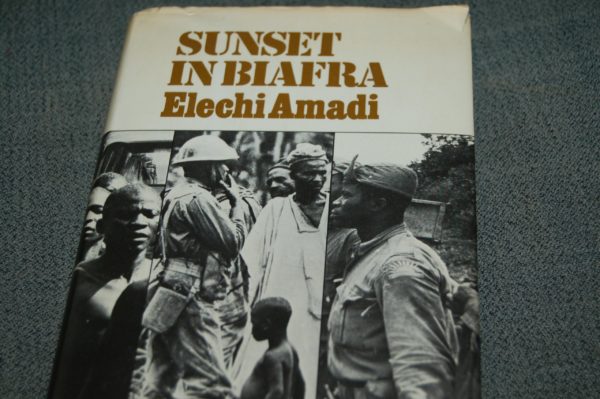
Sunset in Biafra (1973), by Elechi Amadi
Elechi Amadi’s sole non-fiction work is a personal account of the civil war. It is also remarkable for being one of the few works on Biafra written from the point of view of a Biafran minority. In Sunset in Biafra, Amadi portrays the Igbo majority as an ambitious and overbearing group going to war against Nigeria and ultimately dragging an unwilling “Eastern” minority into it.
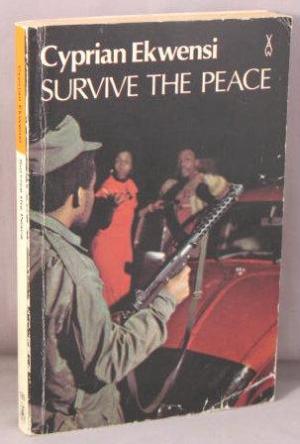
Survive the Peace (1976), by Cyprian Ekwensi
After surviving the war, how do we survive the peace that follows it? Cyprian Ekwensi addresses this question among others with grace and charm. The novel starts at the end of the civil war and is told from the point of view of James Odugo, a journalist and propaganda specialist for a local radio station in Biafra. After surviving the onslaught of the Nigerian soldiers, war-weary Biafrans struggle to survive the mayhem unleashed by hungry, jobless soldiers. In Survive the Peace, Ekwensi deftly captures the chaos and disorder that characterized post-civil war Biafra.
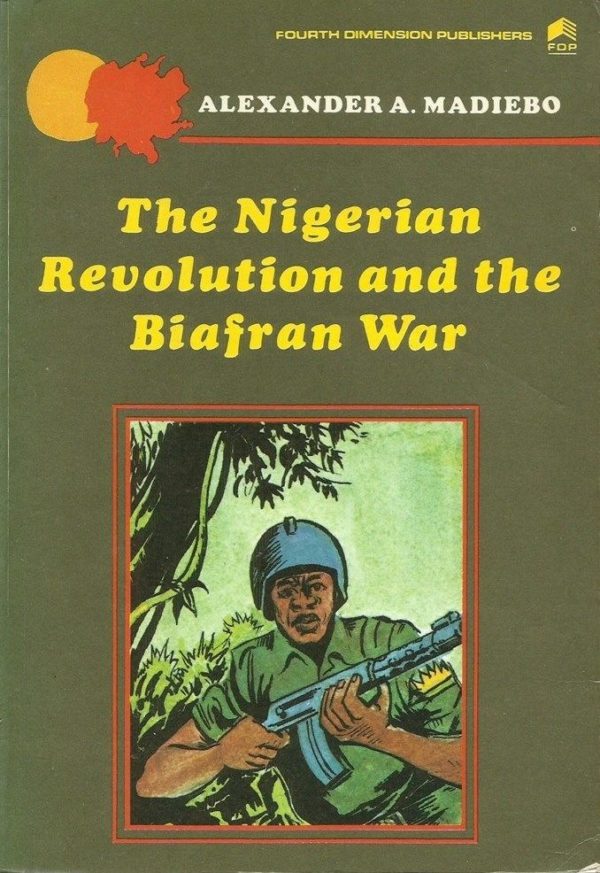
The Nigerian Revolution and the Biafran War (1980), by Alexander Madiebo
A retired general of the Biafran Army and one of the Biafran leader Odumegwu Ojukwu’s right-hand men, Alexander Madiebo is perhaps best-suited to give an insider account. Madiebo combines a revealing perspective and several eye-witness accounts of the operations at play in an attempt to rectify misinformation about the war published outside Africa.
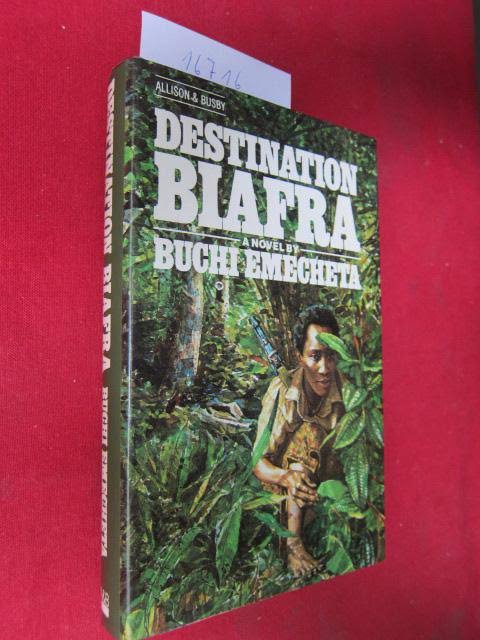
Destination Biafra (1982), by Buchi Emecheta
Buchi Emecheta’s novel, one of the few 20th century Biafra-set books by women, adds a fresh feminist perspective. It centres on Debbie Ogedembge, the Oxford-educated daughter of a corrupt Nigerian government minister, who joins the war on the side of Biafra, defying her parents’ wishes. Destination Biafra shows a conflict affecting all aspects of social life—between tribes, between times, and between gender.
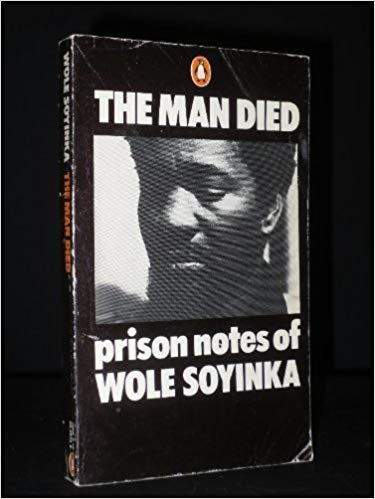
The Man Died (1971), by Wole Soyinka
In 1967, shortly after the commencement of the War, author and political activist Wole Soyinka was arrested and jailed without trial by the Nigerian government for his criticism of its motives. During the 22 months he spent in solitary confinement, Soyinka wrote a significant body of poems and notes from refuse materials, criticizing the government. The Man Died is a personal testimony of his arrest, the government’s several attempts to incriminate him, and the mental effects of solitary confinement.
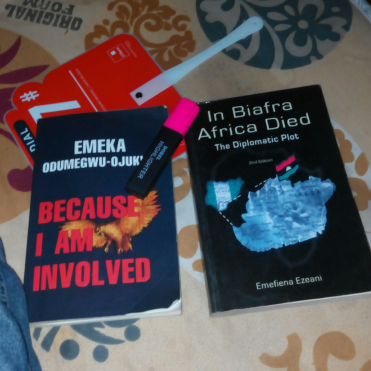
Because I Am Involved (1989) by Chukwuemeka Odumegwu Ojukwu
The leader of the short-lived republic, Odumegwu Ojukwu is charismatic, beloved, and controversial. This is a political treatise that highlights the failings of the nation as well as proffers solutions. It is an unapologetic reflection on his own role in the War as well as an address of the many ills that continue to plague the nation.
In Biafra Africa Died: The Diplomatic Plot (2012), by Emefiana Ezeani
Described as the “most comprehensive and scholarly research narrative on the Nigeria-Biafra War,” Emefiana Ezeani’s widely praised book is a thorough analysis of the politics that contributed to and sustained one of the most gruesome periods of the 20th century in Africa. Ezeani makes a clear-eyed argument on the role of Britain and the Soviet Union in subverting justice for Biafra. It also pays homage to the inventiveness of an increasingly impoverished Biafra.
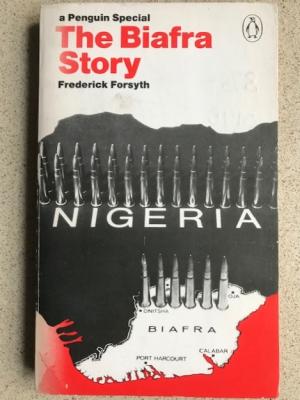
The Biafra Story: The Making of an African Legend (1969), by Frederick Forsyth
English author and journalist Frederick Forsyth spent the first six months of 1967 in Biafra as a correspondent for the BBC. The resulting book, his first as an author, details the brutalities suffered by Biafra and the survival tactics it adopted. It has since come to be regarded as “a modern classic of war reporting.” The book “voices outrage not only at the extremes of human violence, but also at the duplicity and self-interest of the Western Governments—most notably, the British, who tacitly accepted or actively aided that violence.”
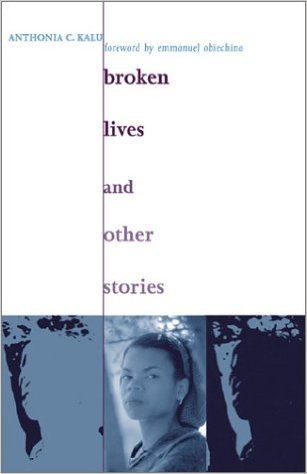
Broken Lives and Other Stories (2003), by Anthonia Kalu
Kalu’s collection of stories focuses on the everyday lives of Biafran women, children, and men during the War. The book shows how personal situations could become connected to public crisis. It examines different subjects from the implications of self-rule to relations between soldiers and civilians.
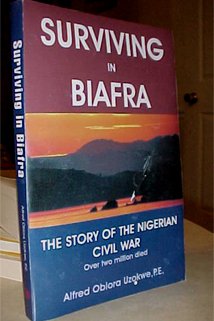
Surviving in Biafra: The Story of the Nigerian Civil War (2003) by Alfred Obiora Uzokwe
Uzokwe’s memoir depicts the War from the point of view of a child. A gripping account of survival, it is a testament to the many ways war could rob one of their childhood.
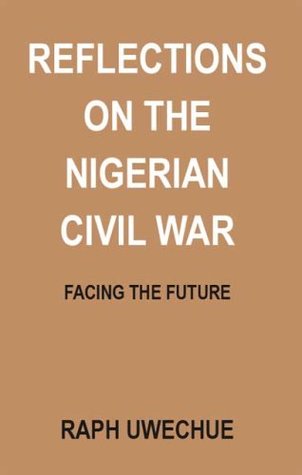
Reflections on the Nigerian Civil War: Facing the Future (2006) by Ralph Uweche
In his book, Ralph Uweche provides a contemporary take on both the War and the very concept of Biafra. Sunday Times called it “The most unimpassioned account, to date, of the Nigerian civil War.”
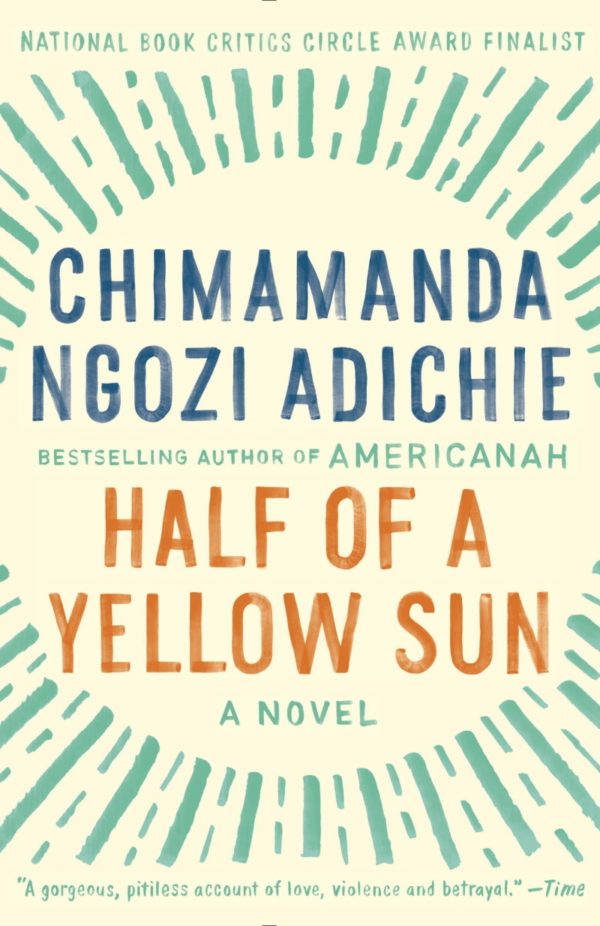
Half of a Yellow Sun (2006), by Chimamanda Ngozi Adichie
Chimamanda Ngozi Adichie’s Women’s Prize-winning novel is widely regarded as one of the most important works on the Biafran War. Told from the point of view of three characters, Half of a Yellow Sun testifies to the nature of war to completely change lives in ways beyond one’s control. The ingenuity of Half of a Yellow Sun is heightened by the fact that the author was born seven years after its end and relied on interviews and books in its creation.
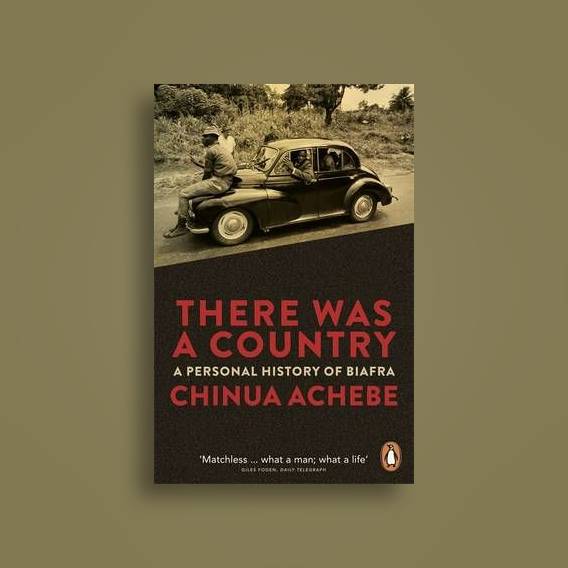
There Was a Country (2012), by Chinua Achebe
Chinua Achebe’s memoir was highly anticipated, arriving after 42 years of “silence.” Prior to its release, his account of the war had only been related obliquely through his poetry. At once a personal history and a public analysis, There Was a Country further solidifies Chinua Achebe’s position as one of the greatest moral voices of our age.
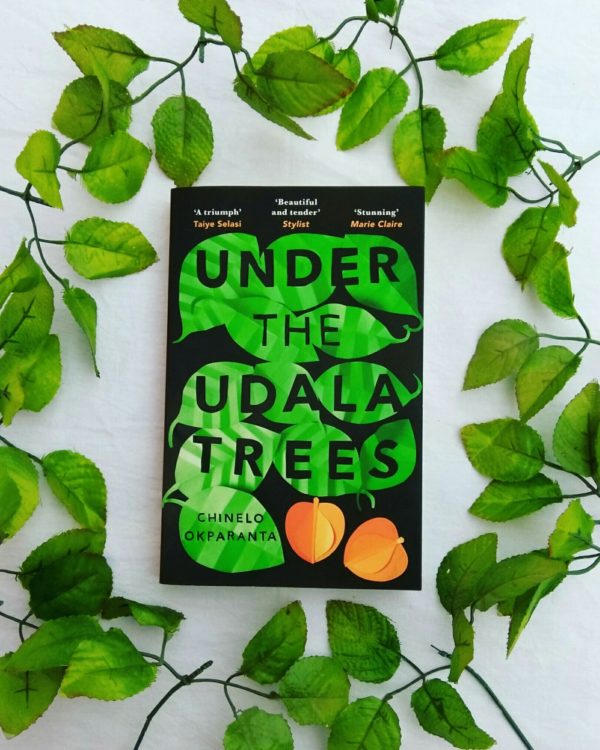
Under the Udala Trees (2015), by Chinelo Okparanta
At the start of the War, a love story blossoms. The oddities are glaringly apparent: not only are the lovebirds, both girls, involved in a “forbidden affair,” they each belong to the warring parties and are of different religious and social backgrounds. Chinelo Okparanta’s powerful debut novel is a sensitive, moving portait of the dangers of living and loving openly, set against the backdrop of one of the most defining moments of her country’s history.
Graph image from Elechi Amadi’s Sunset in Biafra.


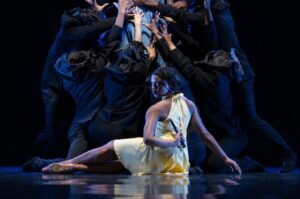


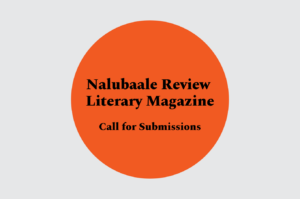
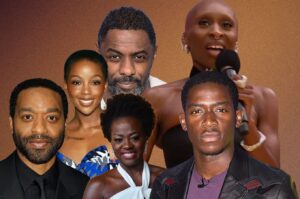


The Road To The Village: Novelist Chigozie Obioma On Nigeria’s Brutal Civil War, Love And Redemption - Global Upfront Newspapers July 03, 2024 00:02
[…] wanted to write this novel because I was surprised to find that there was an abundance of non-fiction written about the war. There is some war-time fiction: that is, fiction in which the […]